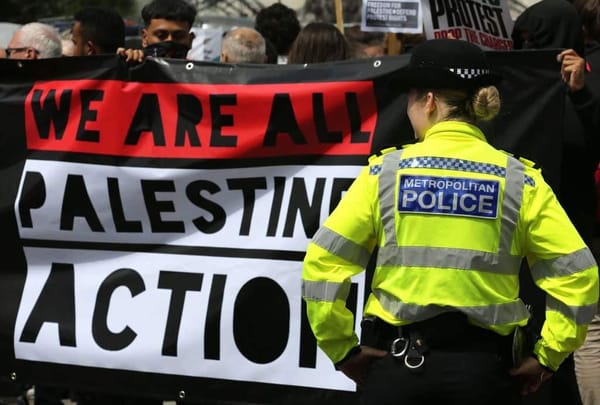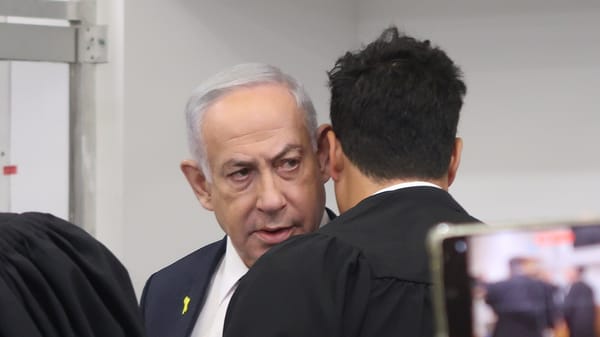A definitive guide to TV’s best Jews
They’re all having an identity crisis, and they all need therapy.

There is something beautiful about seeing your cultural complexities reflected – flaws and all – on screen. Being Jewish, I never felt a lack of representation in film and TV, but for a long time it was the neurotic Jewish man drenched in self-hatred with a complicated relationship with his therapist who took centre stage. It wasn’t until it became legal for women to make art (circa 2010) that I began to recognise myself in what I was seeing on screen.
This list takes you through my top six Jewish TV characters. Despite my best efforts all of them are American and four of them are literally Ashkenazim from New York. Having never seen Friday Night Dinner I can’t in good faith include any British Jews, although I would like to give a special shout out to the Shaar Hashomayim Synagogue Choir led by Cantor Gideon Zelermyer whose voices can be heard at the end of an episode of I May Destroy You – nothing screams Judaism like wading into the ocean after a mental breakdown. It would be great if someday soon the Sephardim could have their moment. After all, we are funnier and hotter.
What all of these characters share is an overwhelming bond of humour and an inescapable closeness to their families and the past. Some of them are found in shows where Judaism is the whole thing and others in shows where we get a perfect cameo. Either way, I love it when the Jews control Hollywood.
This is a non-hierarchical listicle.
Schmidt – New Girl (2011-18)

The year is 2012 and everyone is screaming “TWENNY NOINE” in your face. I want to be back there, back when being 29 felt far away. I want to be watching a TV show that wholly captures the early 2010s: the boring clothes of men in their early 30s; a lost generation of post-financial crash adults. A TV show with monologues about rockin’ a lot of polka dots, before the A24 deathcore aesthetic took hold of our screens. Before bisexual lighting and cocaine. A simpler time.
Schmidt is every handsome Jewish man with a good body who presents as normal but is actually an insane person, neurotic to their core, with an anxious attachment style. Yet behind this posturing, exercise-addicted, appearance-obsessed sociopath lies a metrosexual diaspora Jew from Long Island, who is disgusted by germs and has copious amounts of love to give as well as an undeniable sense of loyalty. Schmidt is unhinged, unfathomably intense and particular, beautifully capturing thousands of years of intergenerational trauma contained in the perfectly sculpted body of the American man who is always on the precipice of explosion.
New Girl could do Phillip Roth, but Phillip Roth could never do New Girl.
Shoshanna – Girls (2012-17)

The thing about Shosh is she was born before feminism embraced the girlie, before we truly acknowledged the validity of hyper femininity and being a girl’s girl. She was living in a world where everyone thought they were better than her. She faced allegations of being unstimulating and not being as intellectual as the one and only Hannah Horvath but really she’s the best one out of the bunch.
Do you know how hard it would be to have older, seemingly cool friends when you’re in your early 20s and be so steadfast about wanting to pursue a corporate career while all your asshole-flailing creative friends roll their eyes at you? She manically strives for growth and knows what she wants but can’t quite grab it. She is unfiltered, a little nuts and kind of the most self-aware and least narcissistic of the Girls “friendship” group. She doesn’t want to be trapped in a Jane Austen novel and be mentally unwell and miserable. She wants to be a pretty girl with a high-paying job, a fiance and a nice little purse. Don’t we all, on some level, desire that?
Josh, Ali and Sarah – Transparent (2014-19)

Jay Duplass, Gaby Hoffmann and Amy Landecker – none of them Jewish, but they transcend Golda “Jewface” accusations. They portray beautifully written, complicated characters who with every Transparent rewatch reveal more about the pain, confusion and absurd hilarity of being alive.
All three of them are lost, selfish, chronic oversharers and incredibly human, creating the perfect blueprint for one of the most heartbreaking, joyful and subversive TV shows – which, to its core, is about (you guessed it) intergenerational trauma, identity and Jewishness. This Jewishness is expressed through a wealthy west coast Ashkenazi family whose patriarch comes out as transgender when her children are adults. Despite its specificity, Transparent’s Jewishness has a universal quality to it. The family dynamics feel pertinent to any family of therapised and non-therapised Jews alike: chaotic, witty and with family history bleeding through.
Season by season, each character finds themselves unmoored and sometimes (manically) connected. Expect one major spinout per season. I can’t pick a favourite of the three: Ali always felt the most relatable, drifting from fad to fad trying to figure out who they are; Joshie the most heartbreaking, so lost and desperately seeking something to cling to; and Sarah made me laugh the most, passionately pursuing things (marriage and divorce) and then immediately getting the ick the second she gets them.
Abbi and Ilana – Broad City (2014-19)

Every straight man at some point in his life will go on a date with a Jewish woman with curly hair and tell her she looks like Ilana from Broad City – it is written.
I love these girls a lot. Broad City starts as a beautiful portrait of female friendship in your mid-20s when you’re broke, working a job you don’t care about, have no idea what you’re doing, and the most important things to you are your friendships. It ends with Abbi and Ilana holding a little more direction, drive, pain and separation but with the same amount of love for one another.
The show mostly revolves around the pair going on chaotic and pointless quests around New York, a city famed for its endless grind, creating the perfect ode to the joys of wasting time with your friends. Ilana is a little bit gross, loves to unashamedly jump on the bandwagon, and is completely obsessed with her best friend. Abbi is more chill and awkward but is tough, competitive and adventurous. She appears more responsible and mature than Ilana but is just as disgusting and silly. The friendship in this show is one of acceptance, unconditional love and support. Girls walked so that Broad City could run in the opposite direction.
Jewishness in Broad City is cheeky and crude. The show isn’t afraid to make fun of itself, and Abbi and Ilana’s Jewishness is a natural part of that; it’s overt but not the primary focus, loud but just one aspect of these queer chaotic girlies. Ultimately it was nice to get some Jewish female thigh representation on screen.
Susie – Curb your Enthusiasm (2000-present)

Susie is not a girlboss but she would definitely wear a T-shirt that says girlboss on it.
In a lot of ways, I think Susie could be seen as the stereotypical Jewish woman written by a Jewish man: abrasive, controlling and irritating to the men around her. But what if the men around you are complete assholes who need to be shouted at?
Susie is the best character in the show. Her ability to go from 0-100 is unmatched by anyone. Her expressions of rage exude a confidence we rarely see from women of a certain age on screen. She is strong-willed, dominating and insane and I love her for it. Unafraid and unintimated by her male counterparts, she is almost the only character who can match Larry’s shamelessness and ruin him with a single outburst. Her unembarrassed relationship to rage is of great comfort to me, and it makes for excellent TV. God bless you, Susie <3
Marc Spector/Steven Grant – Moon Knight (2022)

There’s nothing I love more than a character who goes the entire show never mentioning being Jewish or doing anything Jewish and then shows up on his knees crying at his mother’s Shiva, slamming his kippah to the ground then pounding it against his heart, has a complete mental breakdown triggering a dissociative identity disorder episode, splitting himself between a cheerful, awkward, gentle London boy working in a museum gift shop and a detached mercenary who becomes the avatar for the Egyptian god Khonshu. Jewish identity crisis at the Shiva! My man couldn’t face those dry-ass date biscuits.
Comic book characters have a certain identity chaos to them. I’m no expert but they seem to be written by loads of different people and each author can make these characters’ backstories canonical. It’s like the Talmud ☺
In the comic books, Marc is an Ashkenazi Jew who grew up Orthodox and the son of a kind-hearted, gentle Czechoslovakian rabbi who escaped the Nazis – CLASSIC. Marc develops dissociative identity disorder when he discovers that his rabbi is actually a Nazi serial killer. Who wouldn’t?
This very tumultuous Jewish backstory is absent in the TV series. Still Jewish and slightly unhinged, Marc is portrayed by Oscar Isaac who is Sephardi-coded in my mind, heart, body and soul. It’s giving expelled-during-the-Spanish-Inquisition, relocated-to-Latin-America assimilation vibes. Isaac developed his London accent partly by listening to Jewish accents from Enfield “where a lot of that community is from”. So there we have it. Finally, an unstable Ashkenazi Jew who is also kind of a Sephardi Jew from Enfield.▼
Tash Lever is a writer and photographer. You can subscribe to her newsletter here.





